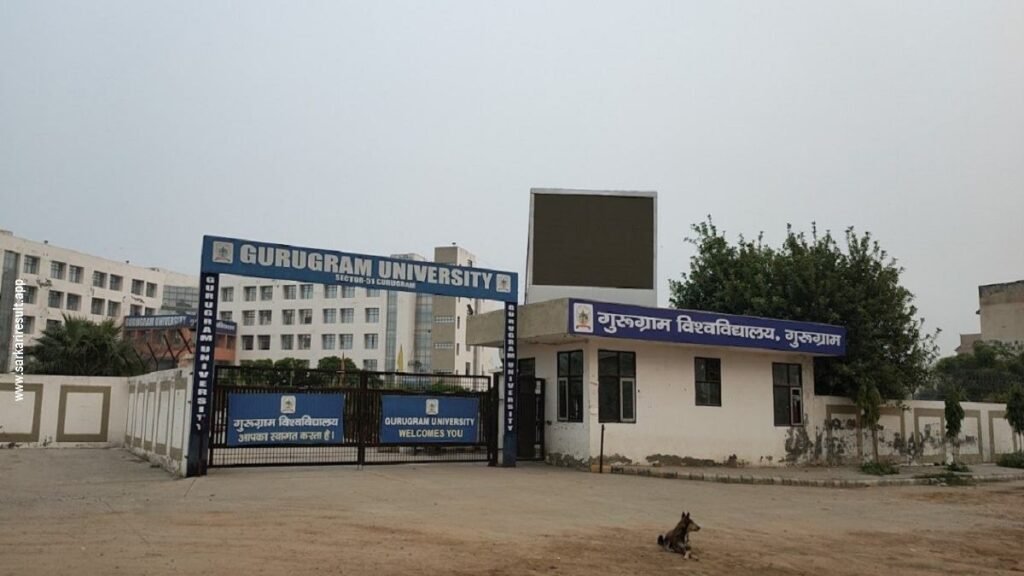Several students argued that the cancellation of the event hindered their ability to engage in informed discussions about issues affecting global politics
Team Clarion
NEW DELHI – Gurugram University has cancelled a scheduled talk on the Palestinian struggle, which was to be delivered by prominent political scientist Prof Zoya Hasan.
The talk ‘Palestinian Struggle for Equal Rights: India & Global Response,’ was scheduled for November 12. Two days before the event, Prof. Zoya Hasan, a professor at Jawaharlal Nehru University (JNU) and known for her activism on human rights, received a call from the organisers that the talk had been cancelled without assigning any reasons, according to media reports.
Prof Hasan was approached by the university faculty, which had initially shown interest in arranging a discussion on the kind of response towards the Palestinian struggle in India and across the world. This talk was to be chaired by Prof Dinesh Kumar, Vice-Chancellor of the university and also the chief patron.
The talk was to address the historical, political, and humanitarian aspects of the Palestine-Israel conflict, offering students an academic perspective on the ongoing struggle. Its cancellation has sparked debate around academic freedom, freedom of speech, and the role of universities in discussing global socio-political issues.
The talk, organised by students and faculty in collaboration with Gurugram University, was part of a series aimed at fostering dialogue on contemporary international issues. The event was expected to attract a large student audience, with interest fuelled by recent escalations in the Israel-Palestine conflict.
University officials cited concerns about potential security issues and the risk of creating divisions within the student body as reasons for cancelling the event. They emphasised that the topic, given its supposedly polarising nature, might lead to discord among students and disrupt campus harmony, media reports said.
They said many students expressed frustration and disappointment at the university’s decision, viewing it as a restriction on their right to academic discourse.
Social media platforms saw a surge of criticism, with students questioning the university’s commitment to intellectual freedom. Several students argued that cancelling the event hindered their ability to engage in informed discussions about issues affecting global politics.
Reacting to an X message by Seema Chishti, Editor of The Wire, in which she informed about the cancellation of the talk show by Gurugram University, netizens questioned the university authorities as to what they were afraid of.
https://twitter.com/catcheronthesly/status/1856689491957666272
Some faculty members also voiced concerns over the implications of the cancellation on academic freedom. They noted that the presence of a respected academic like Prof Hasan would have brought a balanced, well-informed perspective to the topic. They expressed apprehension that avoiding politically sensitive discussions may set a precedent that stifles academic discourse in the future.
This is not the first incident where a talk on Palestine has been cancelled at institutions in India.
In October, JNU cancelled three seminars, to be addressed by the Iranian, Palestinian and Lebanese ambassadors to India on separate occasions, citing “unavoidable circumstances”.
The seminars were meant to address the ongoing violence in West Asian countries and were organised by the Centre for West Asian Studies, housed under the university’s School of International Studies (SIS). Reportedly, senior faculty members had expressed concern over potential protests on campus due to the polarising nature of topics chosen for the seminars.
In November 2023, the Indian Institute of Technology (IIT) Bombay cancelled a scheduled lecture titled ‘Israel-Palestine: The Historical Context’ by Prof Achin Vanaik. The decision was taken in the wake of a growing controversy surrounding the professor’s alleged pro-Hamas and pro-Palestine stance.

